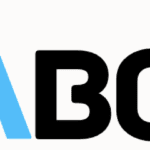Does Google Prefer Content or Backlinks to Determine the Quality and Ranking of a Website?
Decoding Google’s Algorithm: Content vs. Backlinks – The Eternal SEO Debate
In the ever-shifting landscape of search engine optimization (SEO), website owners and digital marketers are constantly striving to unravel the mysteries of Google’s algorithm. A persistent question in the SEO community revolves around the significance of content and backlinks in determining the quality and ranking of a website. Does Google place a higher premium on content, valuing the relevance and quality of information? Or does the search giant lean more towards the quantity and authority of backlinks as a measure of a site’s credibility? In this blog post, we delve into this ongoing debate, exploring the intricate relationship between content and backlinks in the eyes of Google.
The Importance of Content:
Content is the backbone of any website, and Google has repeatedly emphasized the significance of providing valuable, relevant, and user-friendly content. Search engines aim to deliver the best possible results to users’ queries, and well-crafted content is integral to achieving this goal. When users find information that is informative, engaging, and meets their needs, they are more likely to stay on a website longer, reducing bounce rates and signaling to Google that the content is valuable.
Google’s algorithm is designed to analyze the context, relevance, and overall quality of content. Keyword optimization, natural language processing, and semantic search play pivotal roles in how Google understands the content on a webpage. The evolution of algorithms, such as BERT (Bidirectional Encoder Representations from Transformers), reflects Google’s commitment to understanding the context of words in searches, making content even more crucial in achieving favorable rankings.
Content as a Trust Signal:
Beyond merely serving as information for users, quality content contributes to a website’s authority and trustworthiness. Google’s E-A-T (Expertise, Authoritativeness, Trustworthiness) guidelines highlight the importance of establishing a site as a reliable source of information. Websites that consistently produce high-quality, well-researched content are likely to be perceived as authoritative within their niche, which can positively impact their rankings.
Fresh and regularly updated content is also a factor considered by Google. Websites that consistently provide users with up-to-date information are often favored in search results. This emphasis on freshness underscores Google’s commitment to delivering the most relevant and recent information to users.
The Role of Backlinks:
While content is undeniably important, backlinks have long been regarded as a cornerstone of SEO. Backlinks are external links that point to a specific webpage, and Google views them as a vote of confidence and trust from other websites. The rationale is that if multiple reputable sites link to a particular page, it is likely to be valuable and relevant.
Backlinks serve as a form of endorsement, and the quality and authority of the linking sites matter. A backlink from a reputable and high-authority website carries more weight than multiple links from low-quality or spammy sites. This emphasis on quality over quantity aligns with Google’s commitment to delivering reliable and trustworthy information.
Link Building Strategies:
Strategic link building remains an essential aspect of SEO efforts. While organic link-building through the creation of valuable and shareable content is ideal, proactive outreach and relationship-building with other websites can also contribute to a robust backlink profile. However, it’s crucial to steer clear of manipulative practices, such as buying links or engaging in link schemes, as these can result in penalties from Google.
The Evolving Landscape:
As Google’s algorithm continues to evolve, the relationship between content and backlinks becomes more nuanced. The emphasis on user experience, mobile-friendliness, and page speed, among other factors, has expanded the criteria that influence search rankings. Additionally, the use of machine learning and artificial intelligence allows Google to better understand user intent and deliver more personalized search results.
Content and backlinks are not mutually exclusive; rather, they complement each other in providing a comprehensive picture of a website’s quality and relevance. A successful SEO strategy incorporates both elements, recognizing the symbiotic relationship between well-crafted content and authoritative backlinks.
Finding the Right Balance:
In the quest for optimal search engine rankings, website owners and digital marketers should focus on striking a balance between content and backlinks. A content-rich website that addresses user queries, incorporates relevant keywords, and offers a positive user experience lays a solid foundation. Simultaneously, a strategic approach to building high-quality backlinks can enhance a site’s authority and credibility.
Regularly auditing content for freshness, relevance, and optimization, along with periodically assessing the backlink profile for quality and diversity, ensures a holistic SEO strategy. Monitoring industry trends, staying informed about algorithm updates, and adapting strategies accordingly are essential practices for navigating the dynamic SEO landscape.
Conclusion:
Collaborate Pros has been testing content vs. backlinks for over 2 years. Here is what results we see that really move a website’s ranking in Google’s SERPs.
- Home Page People Ask Questions with quality answers and content
- Home Page links to other businesses in the SAME industry. This give huge authority and significance to the industry or niche your are working in.
- Home Page links to blog posts. This is a link from the home page to a blog post with a title that describes the product, service, or item you are discussing or want to rank for.
- Zero backlinks from everything else. Really. We’ve seen websites climb to as high as #1 for many search terms with only citation links and no other “linking strategy” as other SEO experts call it.
The debate over whether Google prefers content or backlinks is a nuanced discussion that lacks a definitive answer. Instead of viewing these elements in isolation, it’s more productive to understand how they work together to shape a website’s online presence. Content remains the vehicle through which information is delivered to users, while backlinks act as signals of trust and authority.
In the evolving realm of SEO, flexibility and adaptability are key. Successful website optimization requires an ongoing commitment to producing high-quality content, fostering organic link-building, and staying attuned to the ever-changing dynamics of search engine algorithms. By recognizing the symbiotic relationship between content and backlinks, website owners and digital marketers can navigate the complexities of SEO and position their sites for sustained success in the competitive online landscape.


